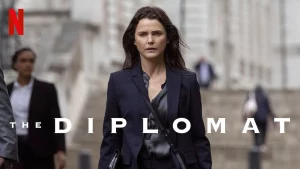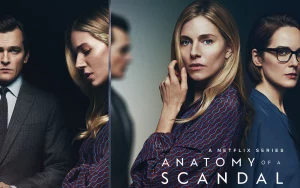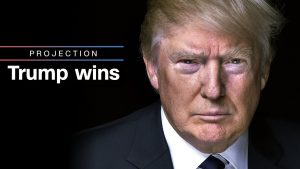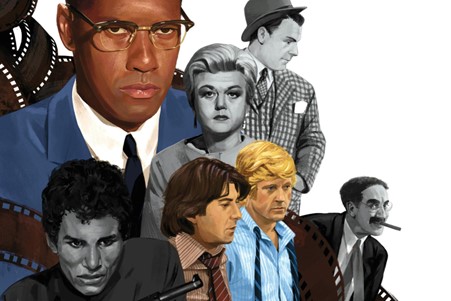Introduction Political movements have always played a significant role in shaping societal norms, values, and ideologies. These movements, whether progressive or conservative, often find their way into various facets of daily life, including entertainment. Entertainment, in its myriad forms films, television, music, literature, and more serves not only as a reflection of society but also
Introduction
Political movements have always played a significant role in shaping societal norms, values, and ideologies. These movements, whether progressive or conservative, often find their way into various facets of daily life, including entertainment. Entertainment, in its myriad forms films, television, music, literature, and more serves not only as a reflection of society but also as a vehicle for influencing public opinion and driving social change. This article delves into the intricate relationship between political movements and entertainment content, examining how political ideologies and actions shape and are shaped by the entertainment industry.
Historical Context

Image by: Yandex.com
- Early 20th Century
In the early 20th century, political movements such as women’s suffrage and labor rights began to influence entertainment content significantly. Films like “The Birth of a Nation” (1915) and “The Grapes of Wrath” (1940) reflected prevailing political sentiments and controversies. While “The Birth of a Nation” controversially glorified the Ku Klux Klan, “The Grapes of Wrath” highlighted the struggles of the working class during the Great Depression.
- Mid 20th Century
The mid-20th century saw the rise of the Civil Rights Movement, which profoundly impacted entertainment. Films like “Guess Who’s Coming to Dinner” (1967) and “To Kill a Mockingbird” (1962) addressed racial issues head-on. Music also played a crucial role, with artists like Bob Dylan and Nina Simone using their platforms to advocate for civil rights.
- Late 20th Century
The latter part of the 20th century witnessed the influence of various political movements, including the feminist movement, LGBTQ+ rights, and anti-war protests. Television shows like “All in the Family” (1971-1979) tackled social issues such as racism, sexism, and homophobia. The punk rock movement, with bands like The Clash and Sex Pistols, served as a form of protest against the political status quo.
The Role of Entertainment in Political Movements

Image by: Yandex.com
- Film
Films have always been a powerful medium for political expression. Directors and writers often use cinema to comment on political issues, challenge societal norms, and inspire change. For instance, the Black Lives Matter movement has influenced recent films like “Get Out” (2017) and “Black Panther” (2018), which explore themes of racial injustice and black empowerment.
- Television
Television, with its broad reach and episodic nature, provides a unique platform for addressing political issues. Shows like “The Handmaid’s Tale” (2017-present) have gained popularity for their dystopian portrayal of a society where women’s rights are severely restricted, resonating with contemporary feminist movements.
- Music
Music has long been a form of political expression. From the protest songs of the 1960s to the hip-hop anthems of today, musicians use their art to speak out against injustice and advocate for change. Artists like Kendrick Lamar and Beyoncé have incorporated themes of racial inequality and empowerment into their music, reflecting and influencing political discourse.
- Literature
Books and literature have also been instrumental in political movements. Works like George Orwell’s “1984” and Margaret Atwood’s “The Handmaid’s Tale” offer critical examinations of totalitarian regimes and gender oppression, respectively. These literary works often inspire and galvanize political activism.
The Impact of Political Movements on Entertainment Content

Image by: Yandex.com
- Representation and Diversity
One of the most significant impacts of political movements on entertainment content is the push for greater representation and diversity. Movements advocating for racial, gender, and LGBTQ+ equality have led to more inclusive casting and storytelling. Films like “Moonlight” (2016) and shows like “Pose” (2018-2021) have broken new ground in representing marginalized communities.
- Censorship and Controversy
Political movements can also lead to censorship and controversy in entertainment. Governments and institutions may seek to suppress content that challenges their authority or contradicts their ideologies. For instance, the McCarthy era in the United States saw the blacklisting of Hollywood figures accused of having communist sympathies.
- Funding and Production
Political movements can influence the funding and production of entertainment content. For example, films and shows that align with certain political ideologies may receive funding from interest groups or face boycotts from opposing factions. The rise of streaming platforms has also democratized content production, allowing for a broader range of political perspectives to be explored.
- Audience Reception
The reception of entertainment content is often shaped by the prevailing political climate. Audiences may embrace or reject content based on their political beliefs, leading to polarized reactions. Social media has amplified this phenomenon, enabling instant feedback and mobilizing collective action, such as boycotts or campaigns to support specific content.
Case Studies

Image by: Yandex.com
- The Black Lives Matter Movement
The Black Lives Matter movement has had a profound impact on entertainment content. Films, television shows, and music addressing racial injustice and police brutality have gained prominence. The success of films like “Judas and the Black Messiah” (2021) and documentaries like “13th” (2016) reflect this shift.
- The MeToo Movement
The MeToo movement has led to significant changes in the entertainment industry, from increased scrutiny of sexual misconduct to more female-led projects. Shows like “The Morning Show” (2019-present) and films like “Promising Young Woman” (2020) have explored themes of sexual harassment and gender inequality.
- LGBTQ+ Rights Movement
The LGBTQ+ rights movement has influenced the portrayal of LGBTQ+ characters and stories in entertainment. Shows like “RuPaul’s Drag Race” (2009-present) and films like “Call Me by Your Name” (2017) have brought LGBTQ+ issues to the forefront, challenging stereotypes and promoting acceptance.
Challenges and Criticisms

Image by: Yandex.com
While political movements have had a largely positive impact on entertainment content, there are challenges and criticisms that arise from this intersection. Some argue that entertainment is becoming too politicized, with certain audiences feeling alienated by content that they perceive as overly focused on social or political issues. Others worry that the emphasis on political narratives could lead to creative restrictions, with stories feeling forced or inauthentic.
Moreover, the industry’s response to political movements is not always consistent or genuine. Some critics accuse studios of “woke-washing” or using diversity as a marketing tool without committing to real change behind the scenes. This raises questions about the sincerity of political messaging in entertainment and whether it is truly advancing the causes it claims to support.
Conclusion
The interplay between political movements and entertainment content is a dynamic and evolving phenomenon. As society continues to grapple with various political issues, entertainment will undoubtedly continue to reflect and influence these debates. By examining this relationship, we gain a deeper understanding of how art and politics intersect, shaping our culture and our world.
















